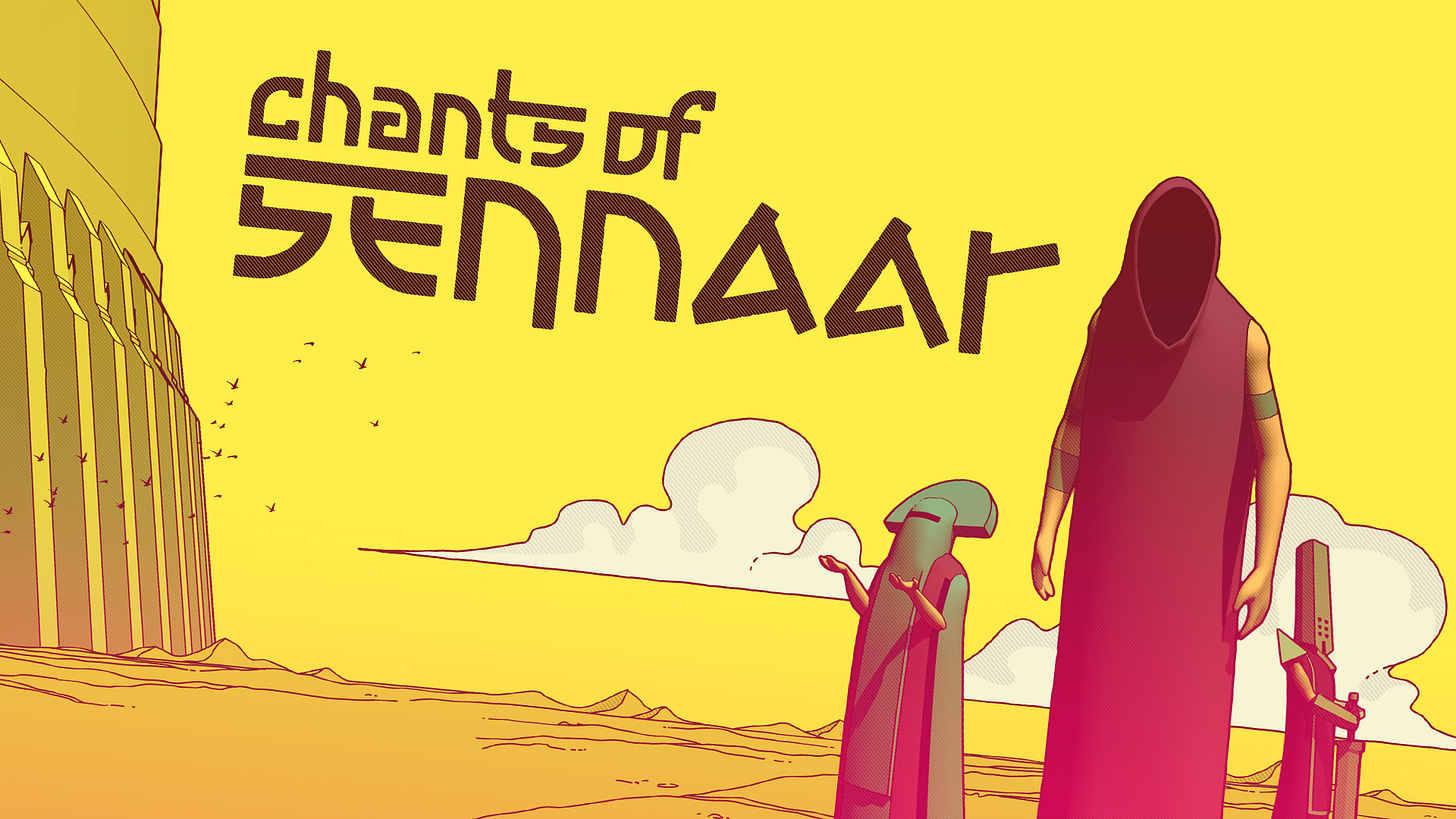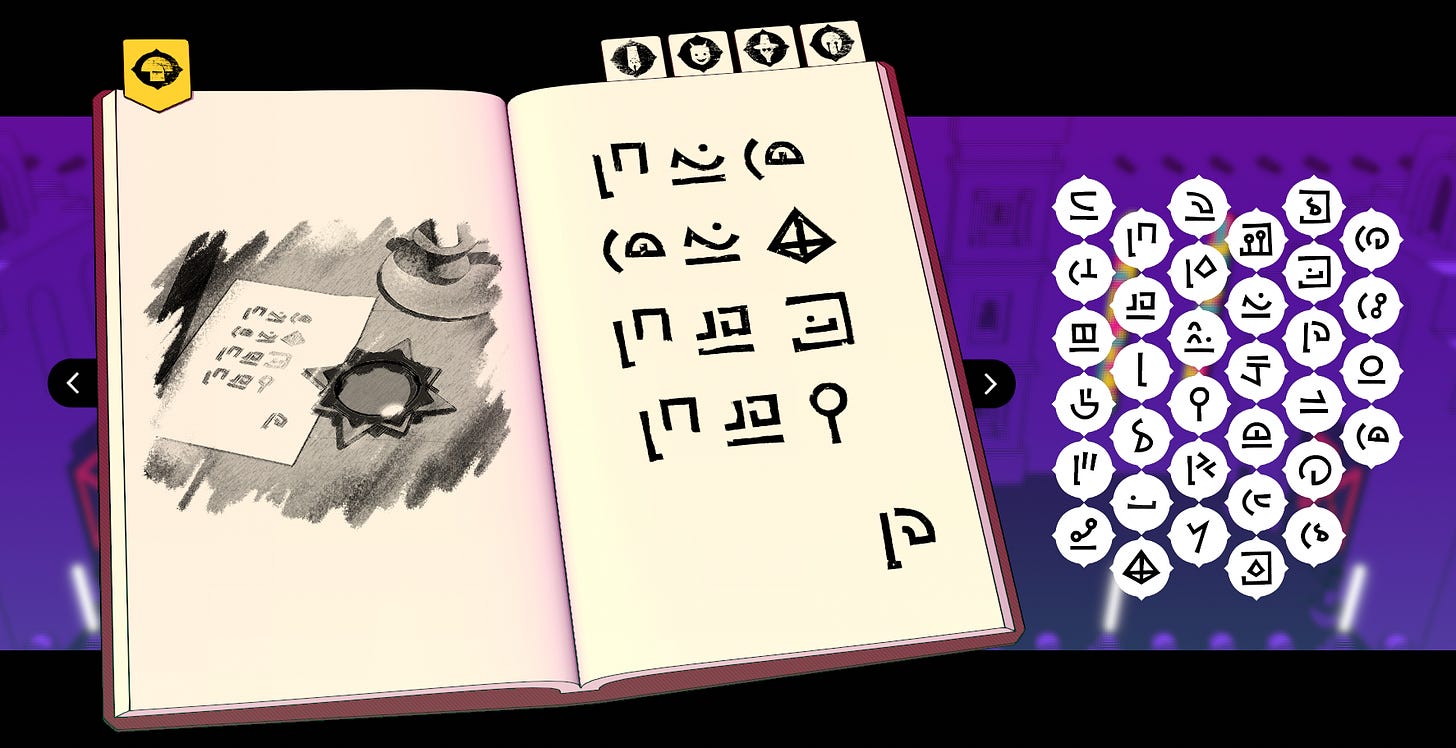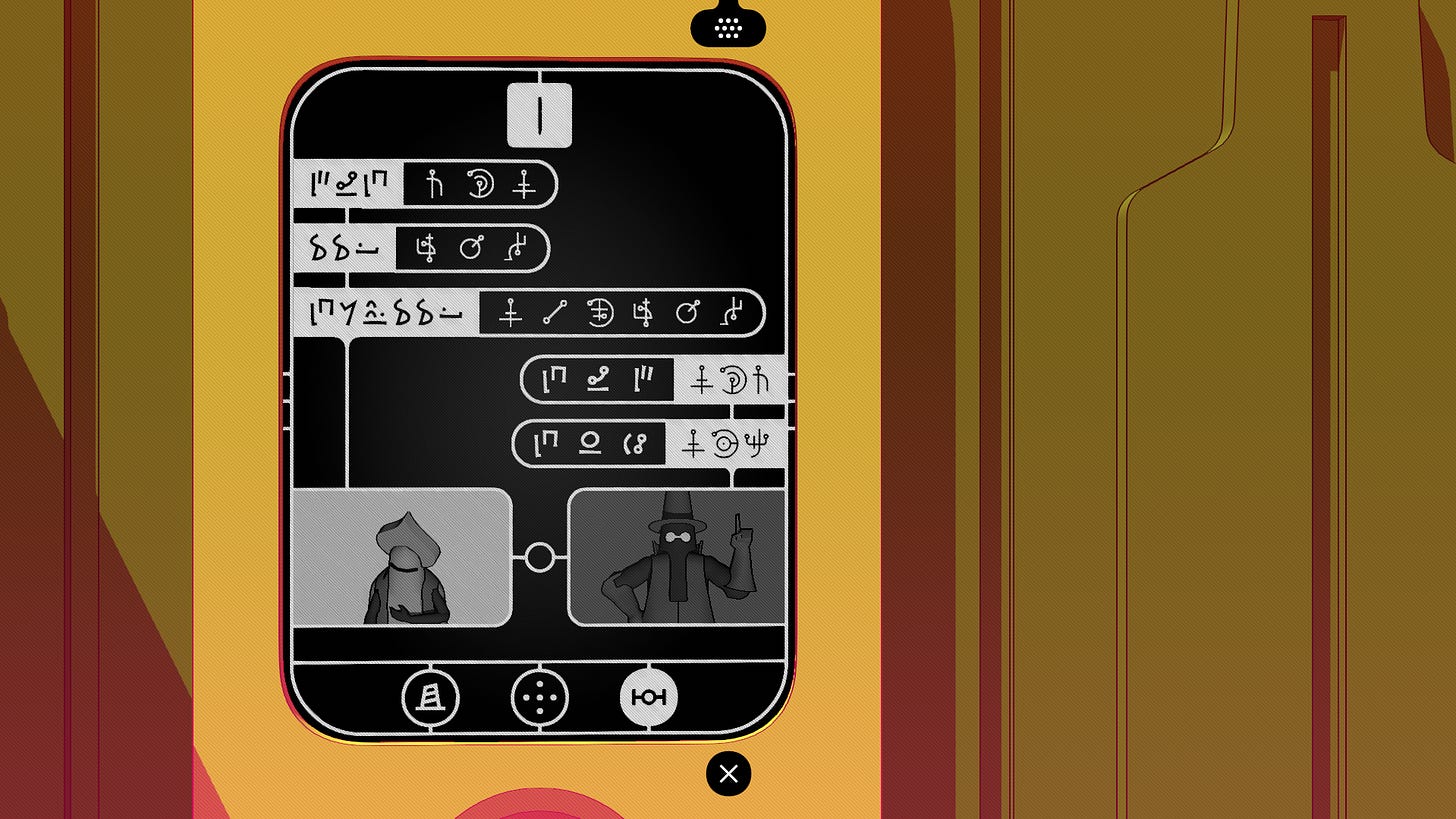Recently I was watching a fantastic video by Adam Millard about games you can’t play again in which they coin the term “Discovery Game”. I am deeply invested in the creation of this genre because, despite the fact that the genre doesn’t currently have a name, discovery games are by far my favorite genre of game.
See the video here:
What is a discovery game?
Adam seems to struggle a bit with the definition in the video so I would like to take a stab at writing my own intuitive definition of a discovery game.
A discovery game is a map based game with progression gated behind player knowledge.
The catch to me is the lack of discrete states. The player doesn’t need an item or to hit a game trigger for a door to unlock. As long as the player knows the password the door will open.
Every game has some elements of discovery here or there. Discovery is almost an inherent part of playing games, but what separates this genre out as something different is tying game progression to player knowledge. What I love about games in this genre is that they allow for meandering, and experimenting.
What separates puzzle games from discovery games?
This is a tough question to answer because the line is blurry and subjective. Puzzle games to me exist within their constraints. A puzzle asks you “Given these rules, can you reach the objective?” A maze for example asks you to reach the end without jumping over walls. If you could jump over walls then the challenge disappears.
Discovery games step up the challenge a notch by asking the player to figure out the constraints of the puzzle until it makes sense. The puzzles themselves don’t have to be difficult to solve because the challenge is in figuring out what the puzzle is rather than working within the constraints of the puzzle to solve it.
Discovery games are unique because the puzzles in them can be simpler. Requiring more intuition and deduction to solve compared to traditional puzzles.
Obvious shining examples of this are Outer Wilds my favorite game of all time, and Obra Dinn. These games have virtually no traditional puzzles in them and the “end” of the games is just kind of sitting in the world waiting for you to find it. I can’t say what Outer Wilds is doing without spoiling anything, but in Obra Dinn the game opens with you on the remains of a doomed vessel and says “Find out the names of everyone on the ship and how they died.” You are then given a watch that lets you witness someone’s death if you can find their remains. Easy right? “Oh this person was shot by that person.” Ok… but what are their names?"
Hopefully now you see the challenge in that. If you knew the story you could sit down and fill out the whole book from the start, but the challenge is in piecing together the story.
Chants of Sennar
Part of the reason I played Chants of Sennar is because Adam Millard called it a discovery game in his video. So the questions to me are do I agree, and did I like it?
Hmmmm……. This is a tough game for me to review because there are parts of the game I absolutely adore, and others that drag the experience down.
The art is amazing, hands down. The game is so artistically unique. The strong yellows and reds make the game stand out, but depending on the area the game is not afraid to stray away from its yellow color palette for cooler blues and whites. No issues there.
Obviously a game like this is going to struggle in the story department, and I have to agree that the story is not exactly ground breaking. Smart people made a tower, others came to the tower, height-based hierarchies formed, racism ensued. No one before you has had the ability to translate between the languages, or if they did it was forgotten a long time ago.
Chants of Sennar relies heavily on the language mechanics and exploration. The issue I have is that the exploration feels far too similar to a traditional point and click adventure than having to use a language I’ve learned to gain access to new locations. The game shines brightest in its language learning theme, but it relies too heavily on key-door style mechanics to reward the player for learning the intricacies of the varied languages the game has on offer.
A counterexample is the end-game translation puzzle that is revealed to the player early on, but are only solvable later in the playthrough. These puzzles are stimulating and engaging. The make me wish the languages were more homogenized throughout the world in order to allow for basic translation to act as a progression mechanic on a smaller scale.
Even worse are the games stealth sections. Mandatory stealth sections are a horse that was beaten to death years ago. The game has mandatory stealth sections, and their inclusion feels silly and awkward.
So is Chants of Sennar a discovery game? I would say no. It has the makings of one, but it has too many traditional point and click mechanics to step away from that genre for me.
Is Chants of Sennar good? Yes absolutely. The game clocks in at about 13 hours for me, and it has an absurdly high finish rate of about 55.5% according to steam achievements. Considering most games have a completion rate of about 13% or lower I’d say this game is very worth your time!
If you do play Chants of Sennar, you should turn off achievement notifications because there is an early game spoiler that gets revealed from them *wipes tears from face*.
SEO Stuff
Language translation mechanics in video games
Tower of Babel metaphor in gaming
Chants of Sennaar vs Outer Wilds vs Obra Dinn
Player knowledge progression in indie games
How Chants of Sennaar tackles racism through language barriers
Stealth sections in Chants of Sennaar critique
Art style and color symbolism in Chants of Sennaar
Discovery games vs traditional puzzle games
End-game translation puzzles in Chants of Sennaar
Cultural worldbuilding through fictional languages
Mandatory stealth mechanics critique in puzzle games
Adam Millard discovery game genre discussion








